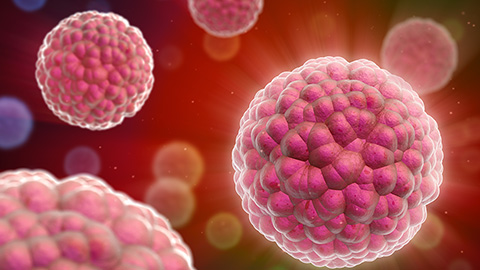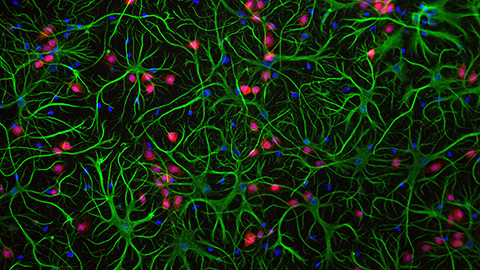
Processing and translating RNA in health and disease
The field of RNA biology has yielded some of the most widely popularized scientific findings in the last two decades. Not only are many researchers using siRNAs and CRISPR on a daily basis, but we wonder how we ever could have not known about their existence. Yet, these are only the tip of the iceberg of exciting RNA-dependent regulation in biology that will be addressed in depth in this session.
Tracing the life of an RNA, including how it is transcribed, processed and spliced in the nucleus in association with chromatin is one focus. A second topic will be around translation into protein, with a particular focus on the underlying molecular mechanisms, ribosome specialization and gene-specific effects. Finally, several talks will discuss how these RNA regulatory mechanisms are dysregulated in neurodegenerative diseases and cancer.
Submit an abstract
Abstract submission begins Sept. 14. If you submit by Oct. 12, you'll get a decision by Nov. 1. The regular submission deadline is Nov. 30. See the categories.
These studies, presented by leading experts in RNA biology, will provide not just a global overview of an increasingly important field, with enormous potential for future discoveries, but also explain why RNA is considered one of the most promising drug targets and platforms. If you want to be ready for the next CRISPR, you will attend this session.
Keywords: Ribosomes, translation, RNA processing, RNA and disease, splicing, chromatin, CRISPR and immunity.
Who should attend: Students and postdocs who want to hear about one of the most rapidly expanding fields in biology, educators who want to make sure what they are teaching is current and curious people who want to know what all the hype is about. And, of course, RNA junkies who can’t get enough.
Theme song: “Friend Like Me” from “Aladdin,” because RNA can do it all.
This session is powered by ATP and other ribonucleotides.
RNA biology
RNA biogenesis and processing
Chair: Olga Anczukow
Tracy L. Johnson, University of California, Los Angeles

Hiten D. Madhani, University of California, San Francisco
Jeremy E. Wilusz, Baylor College of Medicine
Joshua T. Mendell, University of Texas Southwestern Medical Center
Ribosomes and translation
Chair: Katrin Karbstein
Shu-ou Shan, California Institute of Technology
Ruben L. Gonzalez, Columbia University
Homa Ghalei, Emory University
Amy S.Y. Lee, Dana–Farber Cancer Institute; Harvard Medical School
RNA and disease
Chair: Jeremy E. Wilusz
Blake Wiedenheft, Montana State University
Shuying Sun, Johns Hopkins University
Olga Anczukow, Jackson Laboratory for Genomic Medicine
Katrin Karbstein, UF Scripps Institute for Biomedical Innovation & Technology
Enjoy reading ASBMB Today?
Become a member to receive the print edition four times a year and the digital edition monthly.
Learn moreGet the latest from ASBMB Today
Enter your email address, and we’ll send you a weekly email with recent articles, interviews and more.
Latest in Science
Science highlights or most popular articles

Building a career in nutrition across continents
Driven by past women in science, Kazi Sarjana Safain left Bangladesh and pursued a scientific career in the U.S.

Avoiding common figure errors in manuscript submissions
The three figure issues most often flagged during JBC’s data integrity review are background signal errors, image reuse and undeclared splicing errors. Learn how to avoid these and prevent mistakes that could impede publication.

Ragweed compound thwarts aggressive bladder and breast cancers
Scientists from the University of Michigan reveal the mechanism of action of ambrosin, a compound from ragweed, selectively attacks advanced bladder and breast cancer cells in cell-based models, highlighting its potential to treat advanced tumors.

Lipid-lowering therapies could help treat IBD
Genetic evidence shows that drugs that reduce cholesterol or triglyceride levels can either raise or lower inflammatory bowel disease risk by altering gut microbes and immune signaling.

Key regulator of cholesterol protects against Alzheimer’s disease
A new study identifies oxysterol-binding protein-related protein 6 as a central controller of brain cholesterol balance, with protective effects against Alzheimer’s-related neurodegeneration.

From humble beginnings to unlocking lysosomal secrets
Monther Abu–Remaileh will receive the ASBMB’s 2026 Walter A. Shaw Young Investigator Award in Lipid Research at the ASBMB Annual Meeting, March 7-10 in Washington, D.C.


